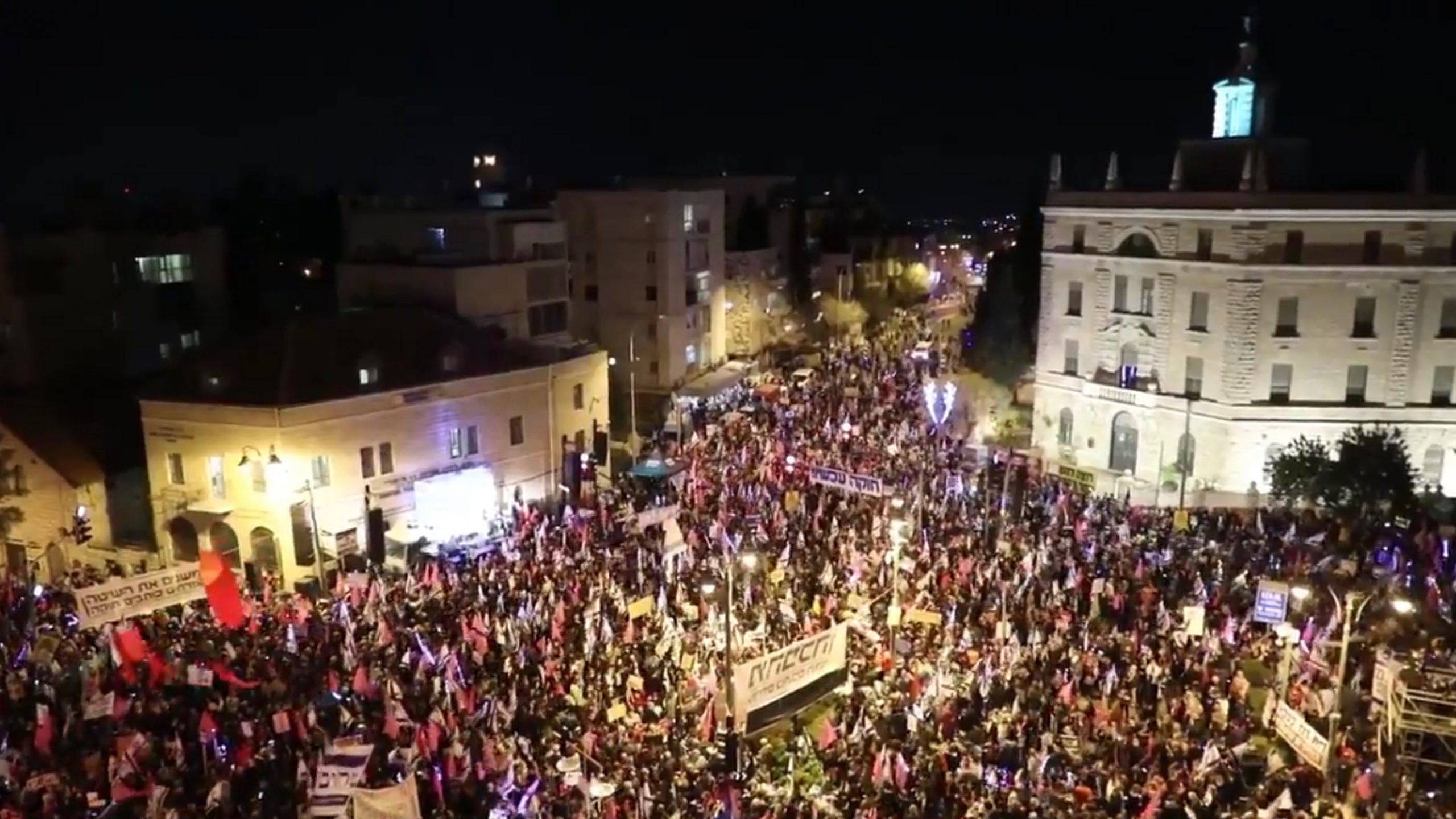Israelis are voting for a new parliament for the fourth time in less than two years on Tuesday, March 23. Over the past two years, Benjamin Netanyahu has remained in power despite not winning a majority even a single time and facing corruption charges. Meanwhile, the opposition has gone through a number of changes, with no party succeeding in overthrowing him. The preliminary results of the election might come out in a few hours while the final results will take weeks.
However, it is likely that the electorate, the majority of whom want Netanyahu to leave, will be disappointed. This is due to the complete hegemony of the right-wing in Israeli politics and the failure of the opposition, including the left, to mobilize their constituency and raise issues which matter. The drastic shift to the right in Israeli politics also means that there is likely no end in sight to the brutal apartheid policies pursued against the people of Palestine.
The day before the election, Al Jazeera quoted Palestinian prime minister Mohammad Shtayyeh as saying, “All their electoral campaigns were at the expense of our land and our people, and parties are competing over more land, more settlements.” A spokesperson for Hamas said the election was between the “right and the extreme right.”
Polls predict yet another hung parliament
The last poll before the voting suggested that Netanyahu’s Likud will emerge as the leading party with around 30-32 seats in the 120-member Knesset. Likud had 36 seats in the last election held in March 2020. Its smaller allies, Shas, United Torah Judaism (UTJ) and Religious Zionist Party — if it crosses the electoral threshold of 3.25 percent — along with the Yamina party may get enough seats for Netanyahu to come back to power. The leader of the right-wing Yamina, Naftali Bennett, was earlier a member of Netanyahu’s cabinet. On previous occasions, he had opposed Netanyahu’s prime ministership but this time, he has indicated that he is not unwilling to join the government. Yamina is expected to get 9-10 seats.
Netanyahu is facing a historic low in popularity — 51% of respondents in polls do not want him as prime minister. There have also been multiple demonstrations against him as he became the first sitting prime minister to face trial in corruption charges in court. However, he has used his government’s aggressive COVID-19 vaccination drive to regain some of his lost support base. Israel has vaccinated more than 70% of its population even as Palestinians under occupation have struggled to get doses.
Netanyahu is also trying something new this election. After signing the Abraham Accords with the UAE, Bahrain, Sudan and Morocco with help of the Trump administration in the US, he has tried to position himself as an ally of the country’s Arab population. This is a complete U-turn in his political career as in the past elections, he has courted right-wing votes through an aggressive anti-Arab and anti-Palestinian agenda.
Netanyahu has faced defections. For instance, Gideon Sa’ar was minister in his cabinet before he broke away and formed New Hope in December last year. Sa’ar is expected to get 9 -10 seats. However, it is the opposition which is much more divided in Israel and has failed to raise any meaningful issue election after election.
One of the biggest shifts in this election is likely to be the decline of Benny Gantz and his Blue and White. Gantz emerged as a key player in the previous elections. After the last election, a united government of Likud and Blue and White was formed in May 2020 citing the COVID-19 emergency. Netanyahu became the prime minister and was slated to occupy the position for 18 months after which Gantz was to take over. However, the government collapsed and fresh elections were called after a failure among the parties to agree on the state budget within the deadline in December. Netanyahu wanted a budget for one year and Blue and White for two years.
However, the very formation of this government of national unity last year saw the Blue and White rupture. One of its key constituents, Yesh Atid, under Yair Lapid left Blue and White. While Blue and White is struggling to reach the 3.25% mark to enter the Knesset, Yesh Atid may emerge as the second largest party with around 20 seats. Its leader Lapid has tried to position himself as a centrist and garner support from the left and Arab parties. However, this approach has puzzled many given the fact that it does not support the two-state solution like the Arab parties.
With 16 seats, the the Arab Joint List had emerged as a key force following the last election. However, the Islamist Ra’am party has left the list and is contesting alone, and may struggle to enter the Knesset. Similarly, the left-wing Meretz has also exited the alliance and the remaining constituents — Hadash, Ta’al and Balad — are expected to get half of what they had in the last election.
Meretz, one of the few parties with an anti-occupation agenda, may get four seats by barely passing the electoral threshold.
The Labour Party, once a dominant force is Israeli politics which has seen a major decline, won six seats in the last election and is expected to maintain the number under yet another new leader, Merav Michaeli.
The popular protests across the country demanding the resignation of Netanyahu, which began in May last year, are now suspended due to the elections. The protesters have shifted to campaigning against Netanyahu and have sworn to return to the streets if he is elected again. The following days and weeks will reveal if Netanyahu will manage to hold on to power despite the groundswell of opposition against him.





